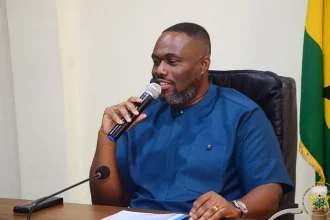The Supreme Court on Thursday, May 23, 2024, was compelled to adjourn the suit challenging the president’s appointing powers.
The adjournment follows the prosecution’s failure to file their responses to the suit. They pleaded with the court to be given an extension.
The apex court granted the request and ordered the team to file their documents within seven days.
The suit filed by the IMANI Centre for Policy and Education and Professor Kwesi Aning holds that the President has no authority to terminate the appointment or removal from office heads of the various state institutions.
According to them, the President can only terminate the appointment upon proven stated misconduct or misbehavior established against these officeholders.
The offices stated in the suit include the Chief Fire Officer of the Fire Service, Inspector General of Police, Director General of Prisons Service and Comptroller General of Immigration Service.
The plaintiffs further stated that the President, upon assumption of office does not have the power to make a fresh appointment to the aforementioned state institutions.
According to them, the President can only make fresh appointments when the immediate holder of the office is deceased, retired, or incapable of performing functions of the office because of the infirmity of the body or mind.
The constitution also permits the President to make appointments if the officeholder has resigned or has been dismissed upon proven stated misconduct or misbehavior.
The plaintiffs explained that these security services are regimented services whose leadership must rise or be appointed from amongst the ranks.
They also contend that “given the importance of these institutions and their effect on the security of the state it was not intended for them to be removed at the will of every President.”
Additionally, the plaintiffs stressed that the tenure of these heads should not be linked to the president’s term, thus safeguarding the said officers from arbitrary removal upon a change in political leadership.
“Regrettably, there has been a concerning trend where new governments compel the termination of the appointment of these heads, disregarding their constitutional rights,” the plaintiffs revealed.
They, therefore, want the apex court to declare unconstitutional the practice of the appointments or removal from office, of persons occupying various positions in the aforementioned offices.
They cite Article 12 (2), 17, 200, 202 (1), 202 (2), 202 (3), 205, 207 (1), 207 (2), 207 (3), 190 (1), 191, 196, 199, and 269 of the 1992 Constitution of Ghana.
Again, the plaintiffs want the apex court “to restrain or prevent the President from dismissing or removing or attempting to dismiss or remove the appointment of persons occupying the stated offices.”
















